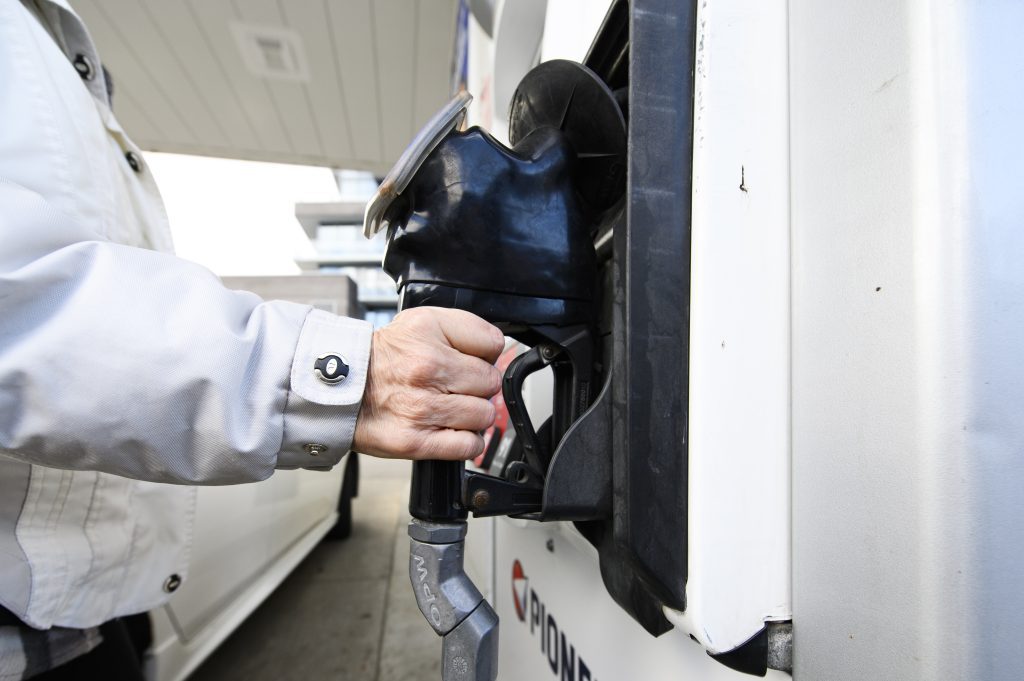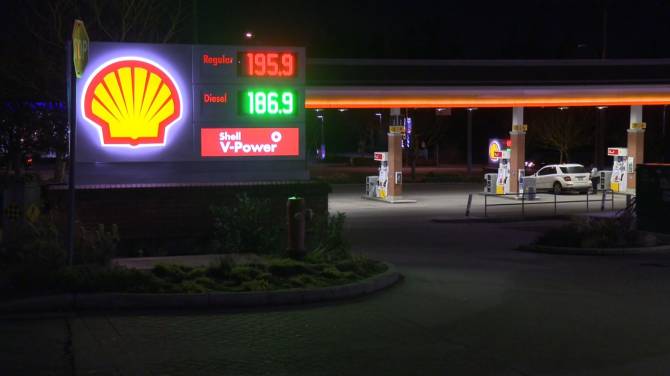Average gas prices Gas prices have gone up significantly throughout Canada in March, based on data from GasBuddy that was released Monday. Toronto had some of the biggest increases.
The average price for gasoline in Toronto has gone up by 11 cents per liter in the last week. It was about 153.04 cents per liter on Sunday, according to GasBuddy’s survey of 1,082 gas stations in the city.
In comparison, the national average has gone up by 4.7 cents per liter in the past week to 155.31 cents per liter, as stated by GasBuddy.com.
Patrick De Haan, who is the head of petroleum analysis at GasBuddy, told Global News there are three main reasons for the increase in March.
“Spring break travel is happening. Warmer weather is coming. So there's more demand for gasoline. Last week, based on GasBuddy data, we saw demand go up by three percent,” he said.
He also mentioned that the impact was varying across the country.
“Ontario saw the largest increase last week with prices going up by $0.10 per liter. B.C. saw prices go up by about $0.07 per liter, Quebec up about $0.06. Meanwhile, Newfoundland, Alberta, and New Brunswick all had prices somewhat lower than the previous week.”
He added, “It’s also happening during the time of year when we are switching over to mandated summer gasoline, which tends to be more expensive to make. Also, refinery maintenance work is limiting the supply of that summer gasoline as we make the transition.”
De Haan said there's more bad news for Canadians at the gas pump.
“I expect gas prices to probably continue going up in many parts of Canada possibly until Victoria Day before we see some improvement,” he said.
Rising gas prices likely led to a higher inflation rate for February, according to some economists who predicted ahead of Tuesday’s report.
How can you spend less money on gas?
If you need gas, De Haan suggests checking where you’re filling up.
“I definitely advise drivers to shop around before they fill up their tank, because in many different Canadian cities, prices could be $0.5 to $0.10 per liter different, sometimes even more dramatic,” he said.
De Haan said this can be done using gas price apps and Google.
He added, “Trying to drive more fuel-efficiently can definitely help. Using cruise control on highways can work wonders for your fuel economy.”
Lanrick Bennett Jr., a bike advocate based in Toronto, said high gas prices and warming weather might make some Canadians think about using other forms of transportation.
“If you’re in an urban area and your point A to point B is 20 km (or less), you can do that by bike or public transit,” he said. “You just have to take some time to plan your route.”
He said Canadians could save a lot of money by replacing some, if not all, of their car trips with biking, walking, and public transit.
De Haan agreed, noting that “using public transit can definitely help reduce your costs for those shorter road trips.”
But it’s not all bad news for Canadians worried about affordability.
Diesel prices in Canada have dropped to around $1.65 per litre, while gasoline prices have gone up to about $1.57 per litre,
This is one of the reasons why some of the inflation numbers have been slowing down, as the cost of diesel has been getting more moderate.




